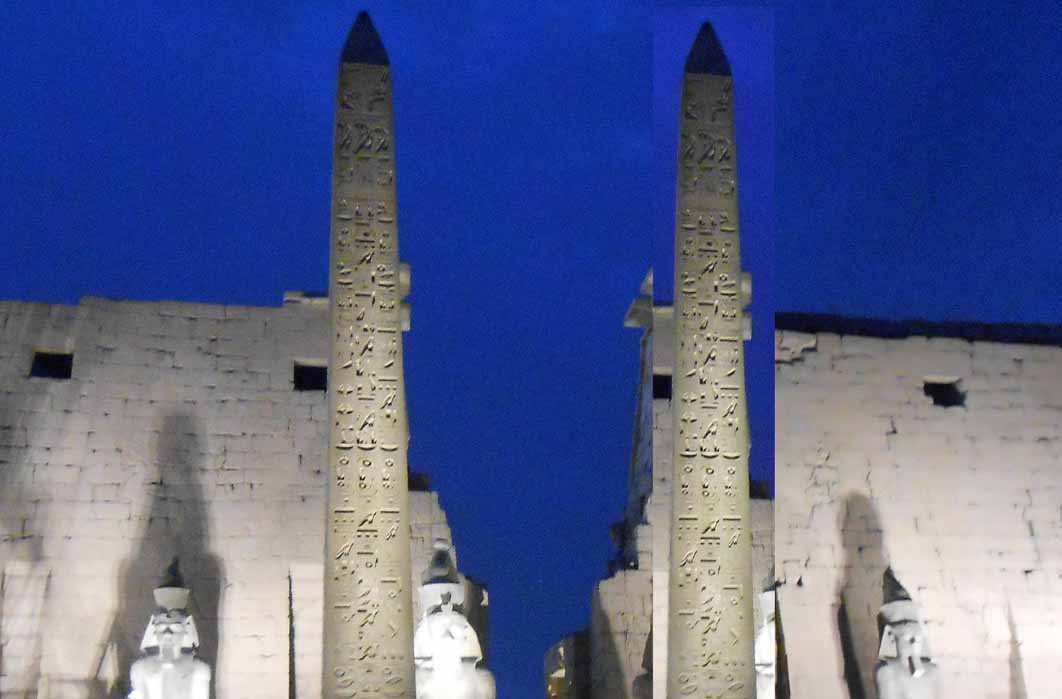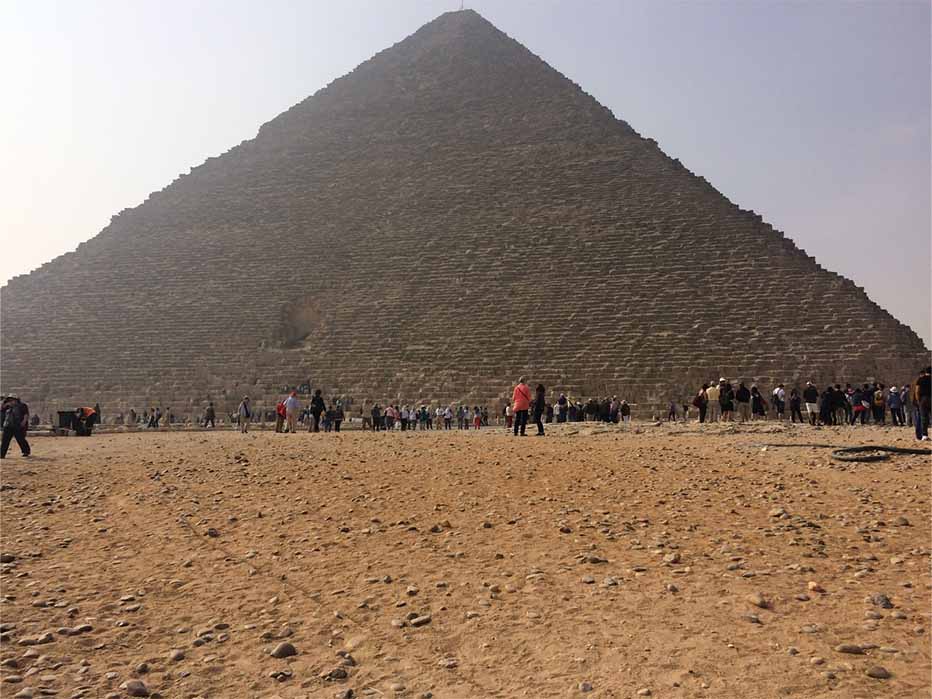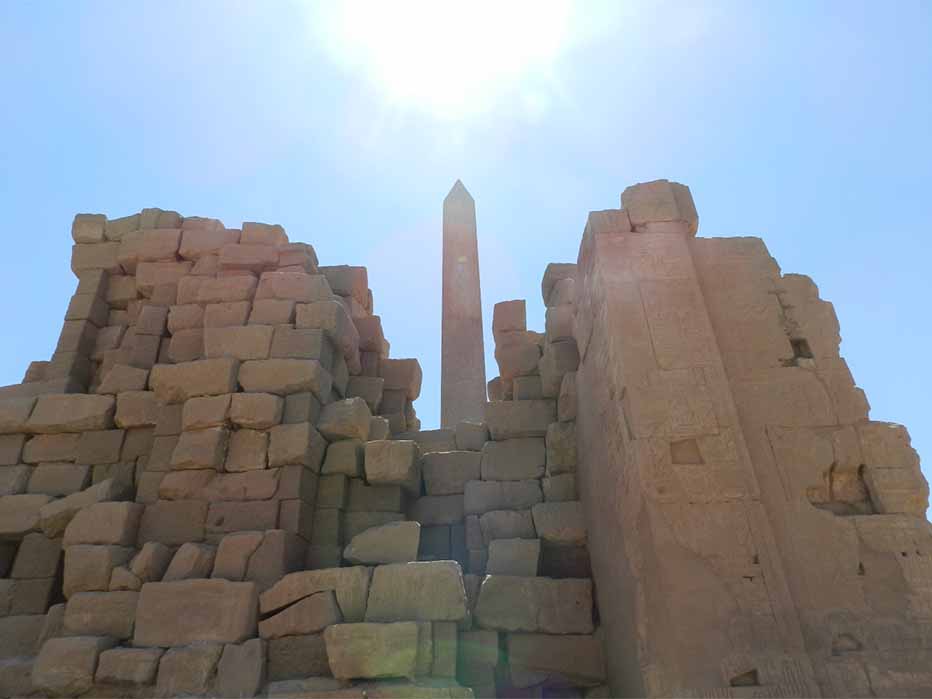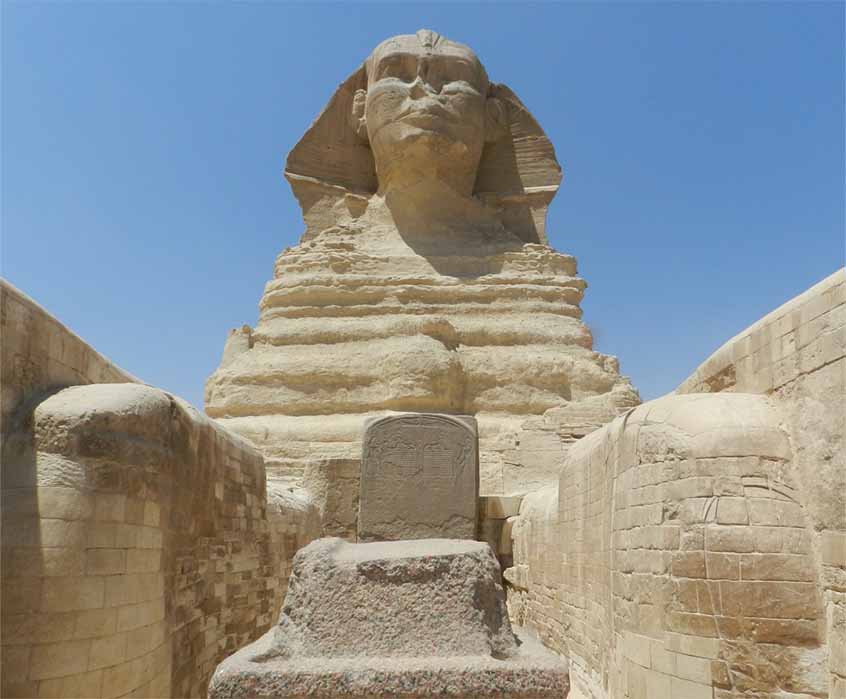
Egyptian Obelisks Unplugged: The Lost Chord Divine
The magic of ancient Egypt, with its megalithic monuments and the mysteries they symbolize, still mesmerizes millions of people 2,500 years after its decline as an ancient cradle of civilization. Egyptologists today reckon that approximately 70 percent of the remains of this ancient culture are still buried under the sands of time and the Sahara desert. Today iconic architectural and engineering representations of ancient Egypt are the Great Pyramid; the guardian of the Giza Plateau, the Sphinx; the temples and the obelisks.
Even after centuries of archaeological exploration and research many questions remain regarding their dating, construction, purpose and possible undiscovered chambers along with unexamined known chambers and voids in the Great Pyramid, the Sphinx and the temples. Obelisks, on the other hand, have been comparatively neglected, which is quite remarkable since the engineering and architecture behind the design of these obelisks is a feat that, in many ways, is as extraordinary as the Great Pyramid.
The Great Sphinx or Hu (Image: Courtesy Donald B Carroll)
Engineering the Sphinx and Great Pyramid
The Sphinx is considered to be a monolithic monument carved from the Giza Plateau bedrock in situ and repaired over millennia with limestone blocks. ‘The Sphinx’, the Greek name of this monument is not its original name, nor is ‘Hor-em-akhet’ (Horus in the horizon), a name given to it by Thutmose IV during the New Kingdom Dynasty when it was honored as a solar deity. According to the Old Kingdom Pyramid Texts its name was “Hu” (transliteration: ḥw) the deification or the personification of the first word, the word of creation, possibly representing the creator itself.
The Great Pyramid, transliterated as Mer in the hieroglyphs, both in engineering and architectural design is considered the most advanced of all the pyramids. Originally it was 481 feet (146.6 meters) in height and 756 feet (230.4 meters) to each of its four sides, and covered with polished white Tura limestone. There is less than a two-inch difference to the length of each of its sides, it is aligned to the four cardinal points and to this day, even with its 13 acres footprint, is less than an inch of being perfectly level. It is estimated that it consists of approximately 2,300,000 blocks with an average weight of two and a-half tons, with the largest blocks weighing up to 80 tons. Modern engineers debate whether it could be recreated to its level of sophistication today, even with all of modern technology available.

The Great Pyramid or Mer (Image: Courtesy Donald B Carroll)
Perhaps because the Great Pyramid is such a massive engineering and architectural feat with internal shafts and chambers that are still being explored, it eclipses the accomplishment of the creation of obelisks. The Great Pyramid seems almost designed to set minds on flights on imagination regarding its function. Theories vary from possibly being a tomb, a place of initiation, an electrical power plant, or a device created by extraterrestrials. Comparatively obelisks seem to have a straightforward function. However, there is evidence, hidden in plain sight, that Egyptian obelisks played a very significant role in Egyptian spirituality, not only in symbolism but in functional purpose, commensurate to the purpose of the Great Pyramid.

Karnak Obelisk or Tekhen (Image: Courtesy Donald B Carroll)





